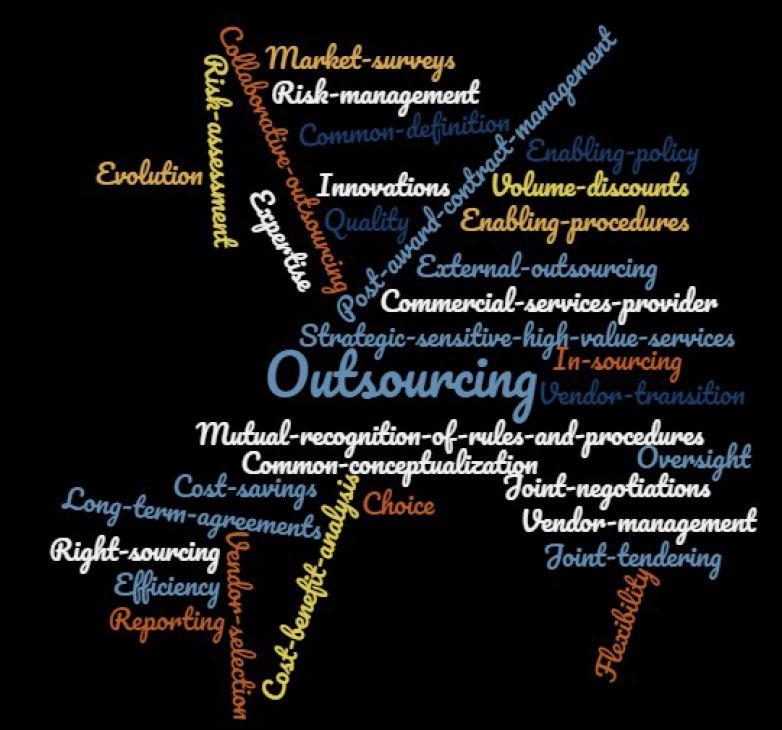- عربي
- 中文
- English
- Français
- Русский
- Español
JIU/REP/2019/9 Review of contemporary practices in the external outsourcing of services to commercial service providers by United Nations system organizations
The present report assesses the strengths, weaknesses, opportunities and threats of utilizing the option of external outsourcing to commercial service providers, outlines the existing enabling legislation and policy in this realm, and provides a tool-kit for organizations to improve how such outsourcing is conducted and managed. The topic is being reviewed by the JIU after 17 years, following a proposal from the United Nations Secretariat.
The review found that, based on available data from 2012 to 2018, external outsourcing of services and related goods to commercial service providers accounted for US$ 22.4 billion in expenditure by 23 JIU participating organizations. 93% of overall outsourcing expenditure is encompassed by only six organizations, while four services categories constitute nearly 60% of total outsourcing volumes and generally have no in-house alternatives. In 12 organizations, outsourcing constitutes over one-fifth of total procurement.
Despite the significant outlay, the review found that there is no specific consideration of, or regular reporting on, the subject matter. Most entities lack dedicated policies, guidelines and procedures on outsourcing, do not distinguish it from standard procurement actions, make sourcing decisions on an ad-hoc basis, and lack a common conceptualization. While outsourcing relations and arrangements are accompanied by multi-faceted challenges and risks, many with mitigating factors, the review also identified accompanying opportunities and solutions, and how organizations have realized a range of tangible and non-tangible benefits through outsourcing.
To address identified deficits, the review highlights the need to: improve decision-making on outsourcing through more systematic conduct of cost-benefit analysis and risk assessments; exploit advances in Information and Communication Technologies to increase efficiencies in outsourcing arrangements; improve vendor selection and post-award contract management processes through the integration of select measures; strengthen internal and inter-agency coordination on outsourcing; enhance internal capacity of contract managers; and improve reporting and oversight on outsourcing practices. The review contains seven formal recommendations addressed to legislative bodies and executive heads and 43 informal recommendations outlining suggestions for improvements. The review’s findings will be presented to the General Assembly, following the receipt of the comments on the report from the Chief Executives Board for Coordination.
Access the full report here.
Access the review highlights here.


